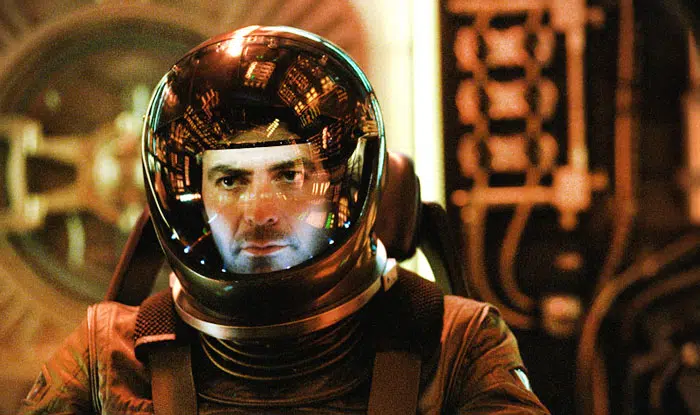Soderbergh’s Solaris: My Love Letter to Soviet Science Fiction
This is my review of Steven Soderbergh’s 2002 film adaptation of the 1961 novel Solaris by the polish writer Stanislaw Lem, a story about a psychologist who is sent to assist the crew of an isolated research station in the titular alien planet. I should probably start by saying that Solaris is my very favorite novel — which is to say that this is mostly a book fan complaining about the movie adaptation. Salaris is also the book that made me fall in love with soviet science fiction as a whole. 🌟

Starring George Clooney and produced by James Cameron, Soderbergh’s Solaris is a full-blown blockbuster. While Soderbergh’s adaptation ultimately disappointed me, I thought I might be able to use this obscure piece of pop culture to discuss some of the aspects I love about the science fiction literature of the Soviet Bloc. These are books that delighted me for their ability to approach deep subjects in an extremely accessible guise, and I hope to convince you to give them a try too.
We must give to Caesar what is Caesar’s: the movie is quite competent in communicating the story clearly in a short span of time — and in this aspect this adaptation is much more successful than Tarkoviski’s. The film also takes great risks in deviating substantially from the original book. The problem is that these diversions range from simply inconsequential — such as changing the gender of certain characters — to down right mutilations of the source material.
One of the most substantial of these deviations is the fact the movie employs considerably more resources to establish the relationship between the protagonist Kris and his late wife, depicting the events leading up to her suicide in great detail and wasting precious screen time in the process. To me, Solaris is a story about confronting ghosts from our past, and while Soderbergh’s adaptation does explore this aspect of the novel, the movie distracts from the greater themes of the original book by transforming the narrative into a story about Kris' personal pain and regret.
But perhaps the greatest tragedy of this adaptation is its categorical failure to depict the existential horror of the source material, which is one of the landmarks of soviet science fiction. These are profoundly terrifying books, not so much because their characters are placed in immediate danger, but because rationalizing the utterly surreal situations they are confronted with requires concocting explanations of such astronomical complexity that these events threaten the very fabric of reality.
Indeed, perhaps one of the most delightfully frustrating aspects of these novels is the fact we are consistently denied explanations. In Lem’s Solaris we never really find out what is the nature of the visitors, nor why they came to the station in the first place. The experiments at the station lead to no smoking gun and the field of Solaristics never gets its final breakthrough.

These are not mysteries to be solved. Instead, the conflict of these narratives lies precisely in the desperate attempts by their characters to grapple with the irreconcilable nature of the riddles they are faced with. Such conflict is only ever resolved when the characters embrace their lack of understanding and capitulate to the unknowable stone monuments they were rudely forced to climb. As melodramatic as their reactions are, Clooney and the rest of the cast are ultimately unable to impress these emotions on the screen.
This is partly because the absurd nature of the events depicted makes them hard to convincingly enact, but also because the thematic deviations of the adaptation distract from the terrifying character of the source material. This is particularly apparent towards the end of the movie, where the story diverts dramatically from that of the novel. For instance, by revealing at the last minute that the character of Snaut (Snow) was actually a Doppelganger-like visitor who had previously killed him, a development which is entirely absent in the original book, the film replaces the subtle abstract horror of the source material with the physical threat of an alien invader.
All in all, Soderbergh’s Solaris is precisely what one would expect from an adaptation of a soviet masterpiece produced by the likes of James Cameron: a lukewarm, profoundly shallow interpretation of the source material. This is about all I had to say. I really hope my humble words inspire more people to explore soviet science fiction, which is greatly underappreciated in the west. If you’re interested, take a look at the books from the likes of Lem or the Strugatski brothers! 😁🌟